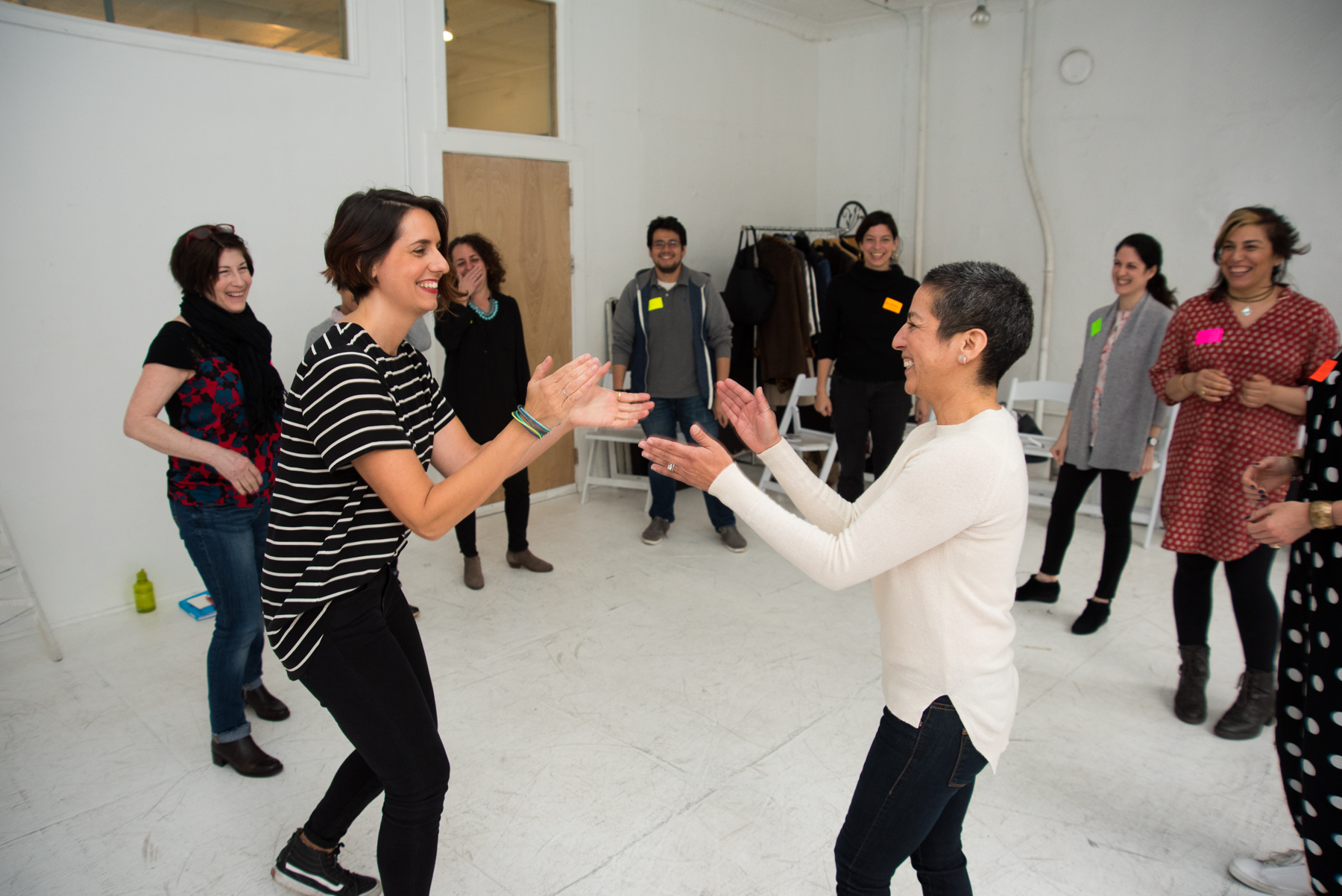In my work with leaders, I’ve found that everyone is working through some type of fear in order to achieve their goals. No matter if that person is a community leader, an organizational founder, or a small business owner, they bravely face and work through their doubts and insecurities on a daily basis.
At B.O.S.S. Consulting we see the best, long-lasting growth for individuals and organizations when we support the human side of leadership. Support the leaders and everything else thrives.
Recently, one of my clients wanted to introduce me to a family member who "does something like what you do." That was the beginning of my connection to Lisa Pertoso and her organization, Follow The Fear.
Follow The Fear works with leaders and organizations to develop skills that help them navigate the ever-changing workplace. I’m excited to have Lisa guest post on the B.O.S.S. Consulting blog today. Give it a read and leave a note in the comments letting us know if you did either (or both) of her suggested exercises!
By Lisa Pertoso, Founder of Follow the Fear
Facilitator, Learning Designer, Organizational Coach
Without a doubt the past fourteen months have been challenging for everyone. We’re tired, scared, and stressed and when those parts of the brain are activated, the more creative parts shut down.
Early into the pandemic I focused on strengthening my creative thinking skills for myself and my clients. I led online workshops that tackled the question:
How can we generate fresh ideas and solutions while stuck at home and every day feels like Groundhog day?
After all, creativity is one of the top five jobs skills for the future, according to The World Economic Forum. As our communities and companies begin to open up we are going to need tools to keep us creative and collaborative more than ever.
Whether you're a solopreneur, small business owner, or manager of a large team, try one of my favorite exercises below at home or at the office. They’re great practice for opening up your mind before tackling a project, running a meeting, or just to get yourself present during the day.
Exercise 1: Stream-of-Observation
You can do this outside (I like to do it during long walks), or inside. Focus on one object and begin to let your mind wander. For example, I walk by a tree and my inner dialogue might sound like this:
There’s a tree, kids climb trees, my friend broke her arm falling out of a tree, when I was a kid riding bikes around my street was the ultimate freedom. No one had helmets, danger wasn’t something people worried about. Dogs pee on trees. There’s bark on trees, and dogs bark. I wish I had a dog though I’m never home, but I love really small dogs that can fit in purses. Why doesn’t anyone say the word "purse" anymore? Everything is a satchel, a tote, a handbag. I wish I could fit everything in my pocket like a man.
My brain started with the sight of a simple tree and progressed toward more complex gender issues. Then make sure to never judge your thoughts, because that is an important step to divergent and creative thinking.
You can do this in your head or write it down, whichever makes you feel more free and less judgmental.
Exercise 2: Toy Storytelling
I have a toddler so I have too many toys lying around, but even before I became a parent I had a toy robot on my desk for inspiration and play. I’d make up a story about the robot to loosen up my mind.
Who are they? What is their current emotion? Where do they live? Do they work, if so, what do they do? Where did they grow up? What are their hobbies? What are their life hopes and dreams?
Bonus if you can move the toy in different positions and then make up a new story. Again feel free to write out the story or say it out loud. If you don't have any toys, Dollar stores are a great place to find fun objects, or open a magazine or newspaper and find a person in a photo.
Again no judgements, just play like a kid again!
Lisa Pertoso is a learning designer, facilitator, and organizational coach. She founded Follow the Fear, an experiential learning company that helps leaders and organizations prepare for the future of work by developing the human skills needed to navigate the changing workplace.
Lisa believes that our most important human skills are developed through experiences, and that the experiences that scare us are our biggest teachers. She follows her fears every day as an improvisation performer, writer, and parent.
